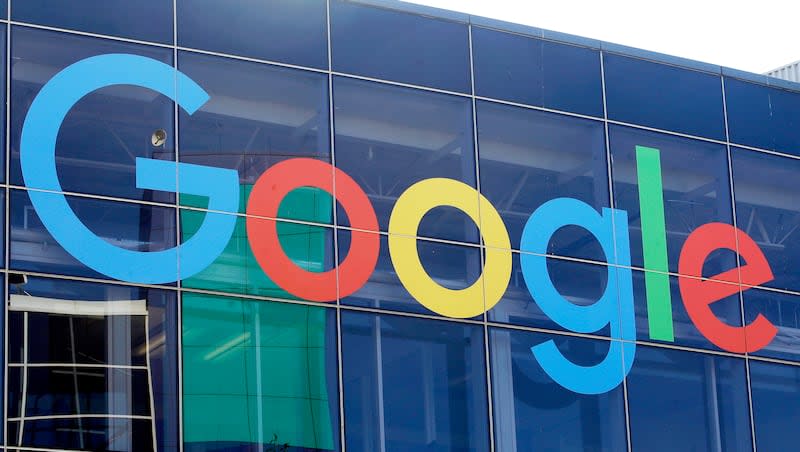‘It’s difficult to be outraged all the time’ — why Google hasn’t been Bud Lighted

It’s been a year since Bud Light sent Dylan Mulvaney a can of beer with an image of the transgender activist on it, resulting in a boycott that reportedly cost Anheuser-Busch InBev more than $1 billion in sales.
Social conservatives felt betrayed by the partnership between Mulvaney and the nation’s best-selling beer and punched back with the most powerful weapon they had: their money. “Go woke, go broke” became a rallying cry on social media, as a video of singer Kid Rock shooting Bud Light cans went viral. It wasn’t long before people began calling for other companies, like Target, to be “Bud Lighted” for any sort of management practice or product brand that seemed solidly left of center.
It was a strategy that worked. A year later, Bud Light’s sales are still down, despite Donald Trump’s urging to let bygones be bygones, and conservatives are still trolling the brand on X.
Which makes it all the more surprising that Google hasn’t been Bud Lighted.
The tech giant has been at odds with conservatives for more than a decade; Utah Sen. Mike Lee has been sparring with Google throughout his Senate career. Google has been accused of blocking conservative email in Gmail and suppressing conservative content in its search engine and on YouTube. Deseret News’s Jacob Hess has shown how Google’s search results can dramatically differ from other search engines on topics such as abortion. And the absurd ahistorical images that its AI-powered image generator Gemini turned out last month, which Washington Post columnist Megan McArdle called “aspirationally overrepresentative,” were the very definition of “woke.” Had Walmart put those pictures on a line of T-shirts, half the country would be Bud Lighting Walmart right now.
In their mea culpas, Google executives called the images that Gemini generated “embarrassing and wrong.” And the company’s quick acknowledgment of the problem we all saw surely helped keep outrage in check. But there’s more to it than that.
Google shut down its Gemini AI graphic service because it exposed the woke programming code that showed up when people asked for images representing the Founding Fathers and Popes. Few knew we had female Popes and Asian, Black and Native Americans in the Continental Congress. pic.twitter.com/gQ6yBEyACG
— Lance Wallnau (@lancewallnau) March 1, 2024
On one level, it seems that Google is simply too big to be canceled, and that’s one reason that many lawmakers want the company, and other tech giants, broken up. But there are other, simpler reasons that the occasional calls to #BoycottGoogle go nowhere.
Maurice Schweitzer, a professor at the University of Pennsylvania’s Wharton School of Business, told me that the Bud Light and Target boycotts succeeded — when boycotts generally don’t — in part because of their timing. This time last year, the campaign for the GOP presidential nomination was accelerating, and Florida Gov. Ron DeSantis, in particular, saw progressive ideology as a winning campaign slogan: Florida is where woke goes to die.
In addition, it is easy to pick up another kind of beer, or shop at another store. But also, there was a performative aspect of the Bud Light boycott that doesn’t easily translate to Google.
“You consume Bud Light in a very public way. When you go to the bar, or you have your buddies over, they see what you’re drinking. And you can easily order a Coors Light or something else.” People use Google products, however for the most part in the privacy or their home or car. “You’re probably locked in with Gmail, YouTube; it’s very difficult to change your calendar. Google is cumbersome; it’s not like ordering the next beer over. And if you continue to use Google, nobody’s noticing,” Schweitzer said.
This is not to say that there aren’t people out there trying to unGoogle themselves or sell Google alternatives to conservatives. They’re just not getting much in the way of traction. Habits are strong, and consumers find Google products desirable, a point made by Google’s counsel in last year’s testimony in the government’s antitrust case against the company. (The decision in that case is expected later this year.) Even PragerU, the conservative education platform that sued Google, alleging censorship, continues to distribute its content on YouTube.
Perhaps more significantly, Schweitzer believes the fervor that accompanied the boycotts last spring is waning, which could explain why the Gemini images were largely accompanied by eye rolling, even when explained as the inevitable product of a woke company culture.
“Already the temperature has come down a little bit,” Schweitzer said. “It’s difficult to be outraged all the time. People get tired of having to rearrange their lives to keep up with each new outrage. Just like the news cycle is very quick, the boycott cycle is very quick. Things keep coming. And most people are just trying to get through the day.”
